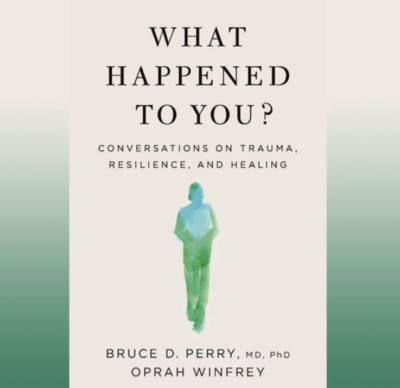 At Sunflower Counseling we make trauma-focused work an extremely important aspect of our practice. This is because we often have someone beginning counseling who is experiencing major depression or anxiety. And, as we begin the therapeutic process and develop a trusting therapeutic relationship, past trauma often begins to be uncovered. The person may have experienced past psychological or physical abuse and didn’t realize how it was affecting various aspects of their lives. In some cases it is more subtle where they witnessed or heard something traumatic and didn’t put any thought into how it could affect them later on in their life. Obviously a lot of time has passed since that initial childhood trauma occurred. And so the trauma gets locked or engrained into the person’s emotional memory banks. So years later a sound or a sight of a passing waiter who looks like their father, might create an entire cascade of emotions like depression or even more immediate – panic attacks.
At Sunflower Counseling we make trauma-focused work an extremely important aspect of our practice. This is because we often have someone beginning counseling who is experiencing major depression or anxiety. And, as we begin the therapeutic process and develop a trusting therapeutic relationship, past trauma often begins to be uncovered. The person may have experienced past psychological or physical abuse and didn’t realize how it was affecting various aspects of their lives. In some cases it is more subtle where they witnessed or heard something traumatic and didn’t put any thought into how it could affect them later on in their life. Obviously a lot of time has passed since that initial childhood trauma occurred. And so the trauma gets locked or engrained into the person’s emotional memory banks. So years later a sound or a sight of a passing waiter who looks like their father, might create an entire cascade of emotions like depression or even more immediate – panic attacks.
In some cases however, the trauma is very recent and has caused a complete disruption in the person’s life. Their ability to continue is a “normal way of living” gets turned upside down because they look around them and “no one else is experiencing this.” So they may be consumed by their experience which has put a very different lens on how they view their world and current situation. This can be very difficult and disempowering for the individual. We have heard some clients express how they just “can’t get over what happened!” and how they “desperately want to.”
In “What Happened to You?” Dr. Perry and Oprah Winfrey discuss how a trauma-informed understanding must be acknowledged and present. It’s not “What’s wrong with you?” but rather, “What happened to you?” When a person has an understanding of another person‘s life experience they will then view their behaviors in a completely different way. This is especially important in the therapeutic process. The client can begin to heal after the realization that they aren’t damaged, or bad, or doing the wrong things for nothing. They are actually surviving and have found a way to be resilient after experiencing devastating trauma. When something happens to a person that is traumatic their brain has to find a way to process this information and self-soothe. This explains why people who have experienced trauma often times turn toward alcohol, drugs, cutting, sexual encounters, or other things to receive dopamine. They are simply finding a way to “feel better.” And this actually acts as a protective mechanism, initially. There’s a big difference between going to Vegas once and going every day.
It’s not “What’s wrong with you?” but rather, “What happened to you?”
Dr. Perry and Oprah both illustrate this idea through sharing various examples of how trauma can have a huge affect on someone. It is well known that Oprah experienced devastating childhood trauma and abuse. However, we gain a new deeper understanding after reading this book about how she understands how this abuse affected her as an adult. In Oprah’s discussions with Dr. Perry she had many breakthroughs about how if someone simply asked her about what happened that would have felt so confirming and soothing. She shared as an adult she had a coping skill of being a people pleaser. This was a response from needing to please the adults in her life or else she would suffer physical, emotional, and sexual abuse. As we know, people don’t do the work to uncover what happened to them and thus they live in this state.

Dr. Perry shares various case studies where he had worked with young children who experienced traumas at a young age. Other practitioners didn’t know what to do about the maladaptive behaviors that were present and affecting the child’s interactions with others. He would often ask teachers or other adults in the child’s life what happened to them and shockingly – that was a new concept. They hadn’t even thought to start with trauma. They were so focused on what the child was doing rather than the experiences that made the child that way.
We are reminded throughout the book how very new trauma focused research is. When Dr. Perry was first starting in his career people didn’t fully understand PTSD or even have a name for it let alone trauma-informed care. He has made understanding and helping people who have experienced trauma his life’s work. In his work now, he has noticed overand over again the vital importance of building a relationship, understanding, and looking at people’s experience in a wider lens. We can never assume that peoples behaviors are coming out of nowhere. It confirms trauma is something to be addressed.
I would highly recommend this book, not only because I happen to love Oprah! Granted, she does delve too deeply into fringe spirituality and woo-woo. But it doesn’t bother me. Who hasn’t gone down the Deepak Chopra road at some time in their life?
Anyway, this was a good reminder that we can’t look at experiences as isolated situations. Everything is intertwined and people can be affected by situations that occurred in childhood, or recently and the way they process these events can come out in various unexpected ways depending on the person. It’s our job as therapists to put a language to these traumas where at one time there was no way to explain it other than a feeling. Dr. Perry also shared an important fact that therapy can take years before the person may even start to become open to really understanding their experience with their therapist. We can’t view therapy as an eight session sprint and then think the person is healed. For some people they might need to meet with their counselor 20 times before they even start to go into what really happened to them. The trust and rapport takes so much time to develop. This reinforces my understanding of how important the therapeutic relationship is to continue building and not put pressure on having people finish up their therapy in a quick manner. It’s a process of evolution.
